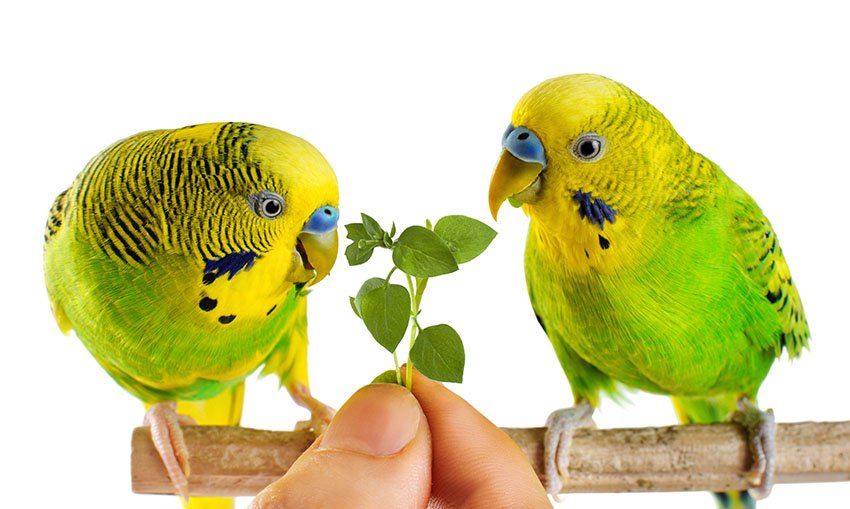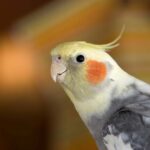Table of Contents
Understanding the feeding habits of Parakeets is crucial for maintaining their health and well-being. Parakeets, also known as budgerigars or budgies, have specific dietary needs that must be met to ensure they live a long, healthy life. In this article, we provide comprehensive insights into the feeding habits of Parakeets to help you provide the best care for your feathered friend.

Importance of a Balanced Diet for Parakeets
A balanced diet is essential for Parakeets to thrive. It helps maintain their energy levels, supports growth, and ensures vibrant plumage. Understanding the feeding habits of Parakeets involves knowing what foods to include in their diet and how to offer them in a way that mimics their natural foraging behavior.
What Do Parakeets Eat in the Wild?
In the wild, Parakeets primarily feed on seeds, fruits, vegetables, and occasional insects. Their diet varies depending on their habitat, but seeds make up the bulk of their nutrition. By mimicking these natural feeding habits of Parakeets, you can create a more enriching and healthy diet for your pet.
Seeds: The Staple of a Parakeet’s Diet
Seeds are a significant part of the feeding habits of Parakeets. However, a diet solely based on seeds can lead to nutritional deficiencies. It’s important to provide a variety of seeds to ensure a balanced intake of nutrients. Common seeds for Parakeets include millet, canary seed, and sunflower seeds.
Incorporating Pellets into the Diet
Pellets are formulated to provide a balanced diet and can be an excellent addition to the feeding habits of Parakeets. Pellets help prevent selective eating, ensuring that your Parakeet receives all necessary nutrients. Gradually introduce pellets into their diet by mixing them with seeds.
Fresh Fruits and Vegetables
Fruits and vegetables are vital to the feeding habits of Parakeets. They provide essential vitamins, minerals, and fiber. Offer a variety of fresh produce such as apples, carrots, spinach, and broccoli. Ensure all fruits and vegetables are washed thoroughly and cut into manageable pieces.
Protein Sources for Parakeets
While seeds and pellets provide some protein, additional sources are beneficial for the feeding habits of Parakeets. Boiled eggs, legumes, and occasional mealworms can provide the necessary protein. These should be given in moderation to avoid overloading their diet with protein.
Providing Clean, Fresh Water
Hydration is crucial for the feeding habits of Parakeets. Ensure your Parakeet has access to clean, fresh water at all times. Change the water daily and clean the water dish regularly to prevent the growth of harmful bacteria.
Treats and Supplements
Treats can be a delightful addition to the feeding habits of Parakeets. Millet sprays, cuttlebone, and mineral blocks are excellent choices. These not only provide nutrients but also keep your Parakeet entertained and stimulated. Treats should be given sparingly to avoid obesity and nutritional imbalance.
Feeding Schedule for Parakeets
Maintaining a consistent feeding schedule is essential for the feeding habits of Parakeets. Offer fresh food in the morning and evening, removing any uneaten portions to prevent spoilage. Regular feeding times help regulate their metabolism and ensure they receive adequate nutrition.
Monitoring Your Parakeet’s Health
Regularly monitor your Parakeet’s health by observing their eating habits, weight, and overall appearance. Changes in the feeding habits of Parakeets can indicate health issues. Consult an avian veterinarian if you notice any signs of illness or changes in behavior.
Conclusion
Understanding the feeding habits of Parakeets is essential for providing a balanced and nutritious diet. By offering a variety of seeds, pellets, fresh fruits, and vegetables, along with adequate protein and hydration, you can ensure your Parakeet thrives. Monitor their health regularly and adjust their diet as needed to keep them happy and healthy.
FAQs
What are the best seeds for feeding Parakeets?
The best seeds for feeding Parakeets include millet, canary seed, and sunflower seeds. These should be part of a varied diet to ensure balanced nutrition.
Can Parakeets eat fruits and vegetables?
Yes, fresh fruits and vegetables are essential to the feeding habits of Parakeets. They provide necessary vitamins, minerals, and fiber. Always wash them thoroughly and cut them into small pieces.
How often should I feed my Parakeet?
You should feed your Parakeet twice a day, offering fresh food in the morning and evening. Remove any uneaten portions to prevent spoilage and maintain a clean feeding area.
Are pellets necessary in a Parakeet’s diet?
Pellets are not strictly necessary but are highly recommended as they provide a balanced diet and prevent selective eating. Gradually introduce pellets alongside seeds.
How can I ensure my Parakeet stays hydrated?
Ensure your Parakeet has access to clean, fresh water at all times. Change the water daily and clean the water dish regularly to prevent bacteria growth.
What should I do if my Parakeet refuses to eat?
If your Parakeet refuses to eat, it could indicate a health issue. Monitor their behavior and consult an avian veterinarian if the problem persists to ensure they receive proper care and nutrition.











